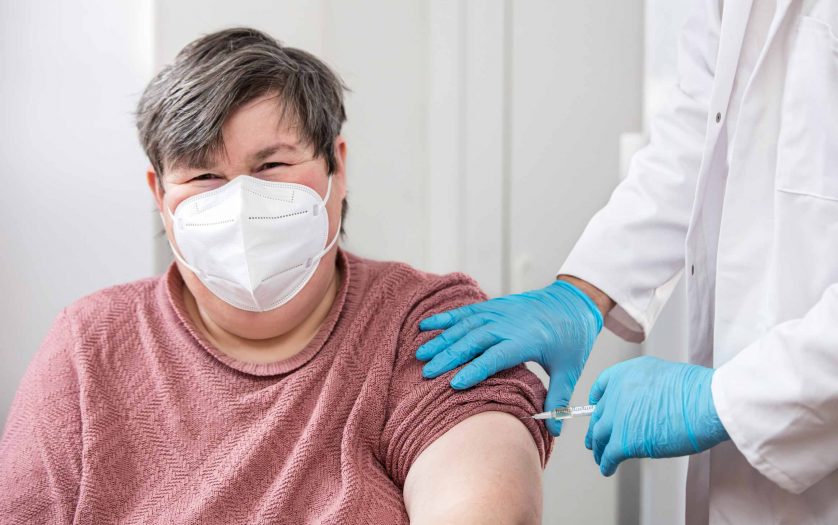
The Australian Technical Advisory Group on Immunisation (ATAGI) has now advised that three doses of a COVID-19 vaccine are required to be up to date in order to provide protection against both infection and severe disease.
For people aged 16 years and older, this means a COVID-19 vaccine booster dose following primary COVID-19 vaccination (usually 2 doses). It is important that people with disability receiving support services and support from disability support workers are protected from the devastating effects of COVID-19.
The Australian Health Protection Principal Committee (AHPPC) has previously recommended mandatory vaccinations (two doses) for disability workers as a condition of work or entry to the recipient’s home if they are providing intensive supports to National Disability Insurance Scheme participants. In view of the changed ATAGI advice, this recommendation should now be three vaccine doses.
Some people with disability are at greater risk from COVID-19 due to:
- chronic conditions or weak immune states placing them at greater risk of serious infection
- challenges they face implementing COVID-19 safe behaviours (e.g. wearing masks, washing hands)
- reliance on close-proximity support from family, carers and support workers, and
- residing in settings with greater risk of COVID-19 transmission e.g. group homes or larger residential care facilities.
It is therefore important to take reasonable and proportionate steps to mitigate the likelihood of COVID-19 being introduced to a person with disability receiving intensive supports. AHPPC notes current high rates of community transmission of the Omicron variant in Australia, which increases the risk of exposure to recipients of intensive supports.
Booster doses have a moderate impact on reducing risk of developing infection from COVID-19. Ensuring workers have received three doses of vaccine has a direct impact on reducing transmission to people with disability receiving supports by preventing infection in workers. There is a potential effect of vaccination in reducing onward transmission from infected individuals who are vaccinated, although data on this are not yet available for Omicron. Booster vaccines for workers in high-risk settings also help to protect workers themselves from both infection and severe disease, in the event of a workplace or other exposure.
AHPPC notes the success of original mandates in achieving high levels of disability support worker vaccination rates.
AHPPC notes that mandating booster vaccinations for disability support workers is not a substitute for measures aimed at improving vaccination rates among people with disability. Improving vaccination rates among people with disability is vital for maximising protection against the risks posed by COVID-19.
AHPPC recommends to National Cabinet that disability support workers receive a third (booster) dose of an approved COVID-19 vaccine as a condition of work or entry to the recipient’s home if they are providing intensive supports to National Disability Insurance Scheme participants.
AHPPC notes that the use of public health orders to mandate vaccinations is an interim and exceptional measure. If disability support workers are required to have vaccinations for COVID-19 or other infectious diseases in the future on health advice, these may be implemented through workplace health and safety or other laws.








